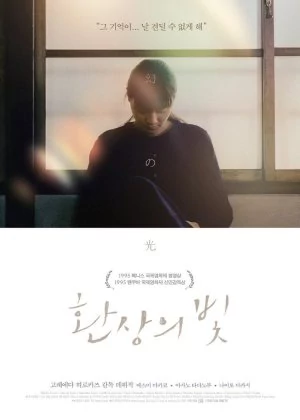Maborosi
Hirokazu Koreeda is by far Japan's most renowned director still making films, it's hard to think of a time when his name didn't ring a bell for most fans of arthouse cinema. Koreeda certainly didn't miss his entrance on the feature film stage, Maborosi [Maboroshi no Hikari] really won me over when I first watched it almost two decades ago. A lot has happened in the meantime though, so I wasn't entirely sure whether the film would still hold up after all this time. Turns out my worries were entirely unfounded, the film was even better than I remembered.
![screen capture of Maborosi [Maboroshi no Hikari]](/thumbs/img/articles/1200xauto/maborosi-1.webp)
Maborosi is a fitting first film for Koreeda. It's a firm and dedicated arthouse drama, a bit more formal compared to his biggest international successes, but in line with how Japanese dramas would evolve in the years following its release. That means it's not the most extrovert and open film, with a stronger focus on mood and emotion than on narrative and dialogues, but that's exactly what draws me to the genre. It's a bit of a departure for Koreeda, who'd been doing human interest docs up until that time, but his knack for capturing the essence of characters is already on full display here.
The film deals with loss. It's not the most original of themes and Koreeda isn't too interested in exploring novel ways to handle the subject. Instead, he puts his characters front and center, giving them room to process their feelings, while finding moments for them to grow (and suffer the occasional relapse). Quite a bit of this emotional turmoil happens behind solemn Japanese facades, but small gestures and appropriate styling choices help to externalize these feelings. It's a plus to be familiar with Japanese dramas, but Koreeda's qualities are eloquent enough to speak to a broader audience.
Yumiko and Ikuo are a happily married couple who just welcomed their first child. They're still finding a balance between being full-time parents and fostering their relationship when disaster strikes. Ikuo is hit by a train and doesn't survive the crash, leaving Yumiko to fend for herself. Yumiko gets support from her friends and eventually remarries a single father who lives in a remote seaside village. Yumiko grabs this second chance with both hands and the new family is happy. But not knowing what exactly happened the day Ikuo died keeps eating away at her.
![screen capture of Maborosi [Maboroshi no Hikari]](/thumbs/img/articles/1200xauto/maborosi-2.webp)
Maborosi may be Koreeda's first feature film, but it's still one of his most beautifully shot ones. There's a stronger focus on the cinematography that is often missing from his later films, something I appreciate a lot. The framing is exquisite, the colors are muted but evocative, and the editing sharp and precise. The finale in particular stands out, making excellent use of the lovely seaside setting and adding tons of emotional weight to an already gripping film. It may look less naturalistic than what you're used to from Koreeda, but for me, that's exactly where the appeal lies here.
The soundtrack is right up there with the visuals. I wouldn't say it is a big departure from typical drama scores, but there's a darker and grittier edge to it that isn't all that common. The sound is slightly muted and it has a more supportive role, but when it needs to be there to strengthen emotional climaxes it definitely turns up. Once again the finale stood out for me, it's the moment where cinematography and score really come together to dish out a heavy, poignant blow that elevates the film well beyond the average Japanese drama.
Fans of Tadanobu Asano shouldn't get too excited, his performance is as brief as it is impeccable. His presence is cut short when his character dies and leaves the film (don't count on any flashbacks in other words). Not to worry though, Makiko Esumi's performance is stellar, no doubt one of her career bests. Her character isn't the most emotive, but her expressions and body language leave little to the imagination, without ever being too obvious or overstated. The rest of the cast does well too, but Esumi is the true star and draws all attention toward her. Koreeda is known for getting the most out of his actors, Maborosi is no exception.
![screen capture of Maborosi [Maboroshi no Hikari]](/thumbs/img/articles/1200xauto/maborosi-3.webp)
Ikuo's death comes fast and sudden, turning the mood of the film around almost immediately. Don't expect a film that is overly depressing though. The mood isn't exactly light, but the middle part has little in the way of actual drama, with Yumiko trying her best (and seemingly succeeding) to get her life back on the rails. It's only during the finale that the film turns quite a bit grimmer, and all the repressed feelings finally erupt. This still happens in the most Japanese way possible, but it's a finale that left me utterly speechless. It's still one of the most impressive scenes Koreeda ever put on film.
Maborosi is an easy recommend for fans of Koreeda's work, and there are plenty of those around nowadays. It's not quite as naturalistic and effortless compared to some of his more recent films, but the subtlety in the characterization and the respect for the drama and its impact on the protagonists are already in full effect. The stylish cinematography, the moody score, and the devastating central performance all help to flesh out and strengthen a captivating drama about processing loss. It's a splendid first feature from a director who would become a leading auteur in contemporary Japanese cinema. If you haven't seen it yet, better give this one priority.
